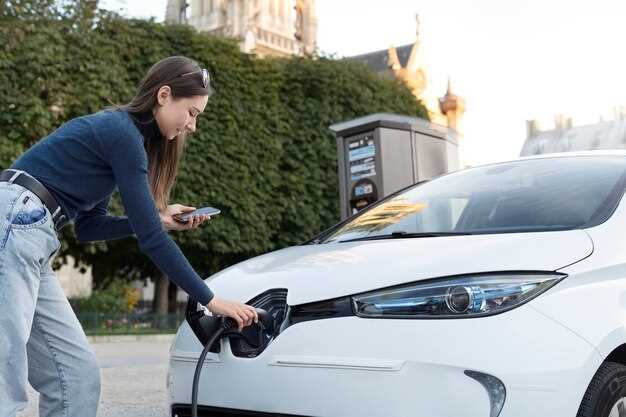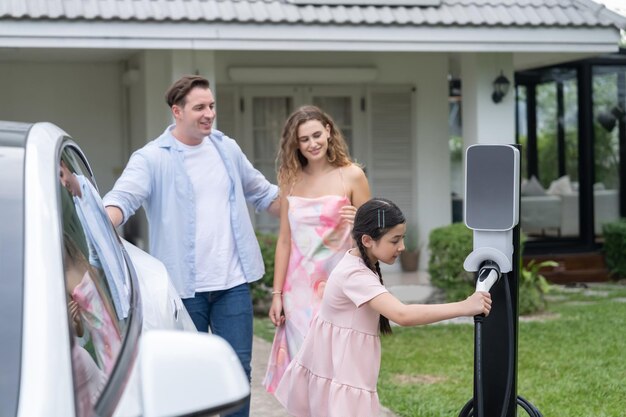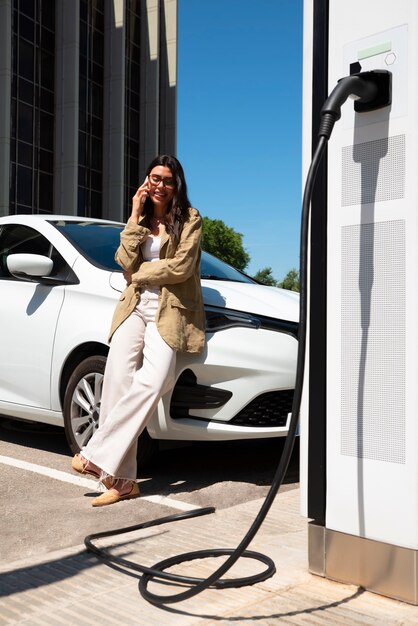
As electric vehicles (EVs) continue to gain popularity, the need for efficient and reliable home charging solutions becomes increasingly important. Investing in a high-quality charger for your home can significantly enhance your EV ownership experience, providing convenience and peace of mind. In 2023, several models have emerged as the top contenders in the market, offering a range of features that cater to various needs and preferences.
Home charging stations vary widely in terms of power output, installation requirements, and smart functionality. Selecting the right home charger not only ensures optimal charging speed for your EV but also maximizes the lifespan of your vehicle’s battery. With advanced technology, many chargers now come equipped with innovative features, such as mobile app integration and energy monitoring, empowering users to optimize their charging habits.
In this article, we will explore the top home chargers for electric cars in 2023, focusing on their key features, installation processes, and compatibility with various EV models. Whether you are a new EV owner or looking to upgrade your current charging solution, our comprehensive guide will help you make an informed decision to enhance your electric vehicle experience.
Evaluating Charging Speeds: Which Home Charger Fits Your EV?

When choosing a home charger for your electric vehicle (EV), understanding the charging speeds is essential. The right charger can significantly impact your daily driving convenience and overall ownership experience. There are three main levels of EV chargers: Level 1, Level 2, and DC Fast Charging, each offering different charging speeds and installation requirements.
Level 1 chargers use a standard 120V outlet and are suitable for overnight charging. They typically deliver 2 to 5 miles of range per hour of charging, making them less ideal for daily use if you drive longer distances. Installation is straightforward, as they do not require any specialized equipment, but the slow charging speed may necessitate longer plug-in times.
Level 2 chargers, operating on a 240V outlet, are the most popular choice among EV owners. They provide a much faster charging speed, usually offering 10 to 60 miles of range per hour. This means you can fully charge your vehicle overnight with minimal inconvenience. While the installation of a Level 2 charger may require professional assistance and potentially circuit upgrades, the increased charging speed is often worth the investment.
For those who need rapid charging, DC Fast Chargers offer the fastest charging speeds, taking less than an hour to provide 60 to 100 miles of range. However, they are typically found in public charging stations, as home installation can be complex and costly due to their higher power requirements.
In summary, selecting the right home charger for your EV depends on your daily driving habits and the time you can dedicate to charging. Level 1 chargers may suffice for short commutes, while Level 2 chargers are a practical solution for most users seeking a balance between charging speed and installation convenience.
Cost Analysis: Budgeting for Home EV Charger Installation
Installing a home EV charger can be a significant investment, but it is essential for electric vehicle (EV) owners who want the convenience of charging at home. Understanding the costs involved will help you plan your budget effectively.
Here are the main factors to consider when budgeting for your home EV charger installation:
- Charger Cost: The price of EV chargers varies based on features, speed, and brand. On average, you can expect to pay between $500 and $1,500 for the charger itself.
- Installation Fees: Hiring a licensed electrician is crucial for safe installation. Labor costs can range from $300 to $1,000, depending on your location and the complexity of the installation.
- Electrical Upgrades: If your home’s electrical system cannot support a new charger, you might need to upgrade your electrical panel. This can add $1,000 to $3,000 to your total costs.
- Permits: Some areas require permits for installing EV chargers. Permitting fees typically range from $50 to $300, so check local regulations before proceeding.
- Incentives and Rebates: Many states and utilities offer incentives for installing home EV chargers. Research available rebates to offset your overall costs.
To give you a clearer picture, here’s a simple breakdown of potential costs:
- EV Charger: $500 – $1,500
- Installation: $300 – $1,000
- Electrical Upgrades (if needed): $1,000 – $3,000
- Permits: $50 – $300
- Total Estimated Cost: $1,850 – $5,800
In conclusion, careful planning and research can help you navigate the costs associated with home EV charger installation. By understanding the various components involved, you can make informed financial decisions and enjoy the benefits of conveniently charging your electric vehicle at home.
Installation Tips: How to Prepare Your Home for an EV Charger

Preparing your home for an EV charger involves several important steps to ensure a safe and efficient installation. First, assess your electrical system. Check the capacity of your existing electrical panel to determine if it’s sufficient to support the additional load of the charger. Most home EV chargers require a dedicated circuit, usually around 40 to 50 amps, so you may need a panel upgrade.
Next, choose the optimal location for the charger. Ideally, it should be installed near your parking area, whether that’s a garage or an outdoor space. Ensure easy access to the power supply while considering factors like cable length and access to your vehicle. If you park in a driveway, you may also want to think about outdoor weatherproofing for the charger.
Before commencing installation, evaluate the distance from the charger to the electrical panel. Longer distances may require heavier gauge wiring, which can increase costs. Also, confirm local regulations and building codes for residential EV charger installations. Many jurisdictions have specific requirements regarding permits and inspections.
Lastly, hire a qualified electrician. They will ensure that the installation is done safely, up to code, and tailored to your specific situation. Their expertise can provide peace of mind and ensure that your home is fully prepared to support your new EV charger, allowing for a seamless charging experience.
